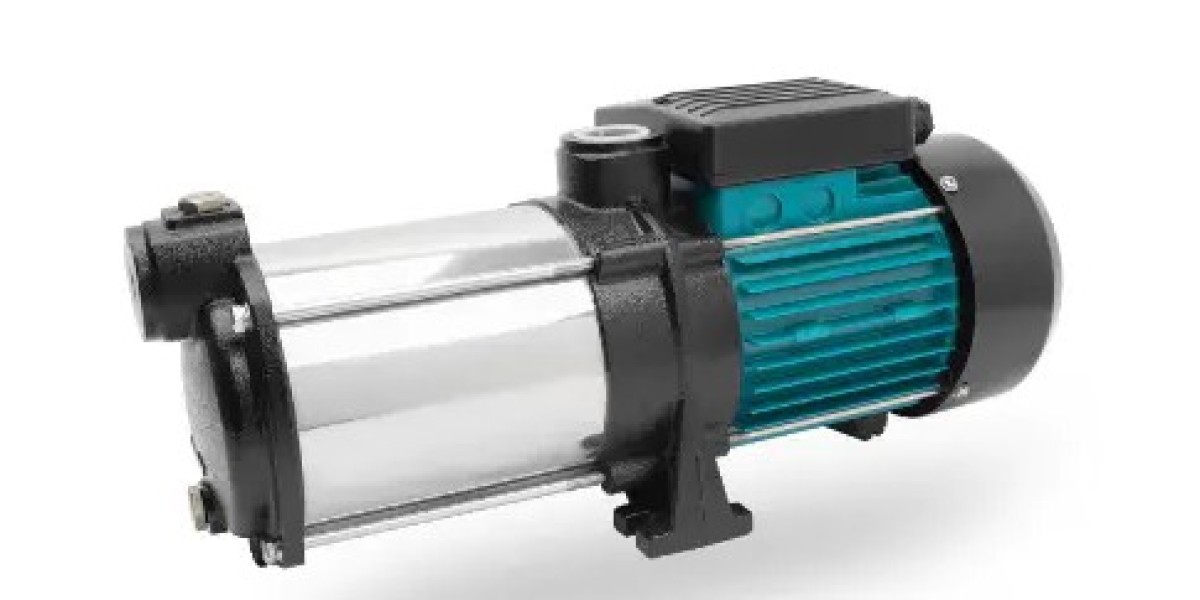The horizontal multistage pump is a commonly used pump in industries where high pressure and continuous flow are essential. This type of pump is designed to handle fluids at high pressures, making it suitable for a wide range of applications, from water treatment to industrial processes. In this article, we will explore the structure, advantages, and typical uses of horizontal multistage pumps, shedding light on why they are a preferred option in various sectors.
What is a Horizontal Multistage Pump?
A horizontal multistage pump is a type of centrifugal pump that uses multiple impellers, or stages, to increase the pressure of a liquid. Each stage consists of an impeller, which is a rotating component that adds kinetic energy to the fluid, followed by a diffuser that converts the kinetic energy into pressure. These pumps are typically mounted horizontally, which helps save space in various installations. The multiple stages work together to achieve high pressure without needing a large, single-stage pump.
The key feature of the horizontal multistage pump is its ability to produce higher pressures with each successive stage. This makes it a valuable tool for applications where a higher head is required to move fluid over long distances or against high resistance.
Advantages of Horizontal Multistage Pumps
High Efficiency in Pressure Handling: Horizontal multistage pumps are designed for high-pressure applications, making them ideal for systems that require a significant increase in pressure. By using multiple stages, the pump can gradually increase the pressure of the fluid without overloading any single impeller. This efficiency allows for the effective movement of water and other fluids through pipes over long distances or through challenging systems.
Compact and Space-Saving Design: The horizontal mounting of the multistage pump allows for a compact design, which is particularly useful in installations with limited space. Unlike vertical multistage pumps, which require more vertical space, horizontal pumps can be installed in tight areas, making them a versatile solution for various industries, including water treatment plants and HVAC systems.
Continuous Flow and Stability: The horizontal multistage pump ensures a continuous and stable flow of fluids. Since the pump gradually increases pressure through multiple stages, it provides a steady output, which is essential in applications where constant pressure is needed, such as in boiler feed water systems, irrigation, and industrial fluid transfer systems.
Long Lifespan and Durability: Horizontal multistage pumps are typically built to last, thanks to their robust construction and the use of high-quality materials. The multiple stages also reduce the strain on individual components, which helps extend the life of the pump. Additionally, because the pump operates under lower RPMs than other types, wear and tear are reduced, making it a more durable option for long-term use.
Energy Efficiency: In comparison to single-stage pumps, horizontal multistage pumps often consume less energy to achieve the same pressure. This is because they distribute the workload across multiple stages, reducing the overall power needed for operation. This can result in cost savings in energy consumption over time, especially in applications with continuous pumping requirements.
Common Applications of Horizontal Multistage Pumps
The versatility of horizontal multistage pumps makes them suitable for a wide variety of industries. Some of the most common applications include:
Water Treatment: Horizontal multistage pumps are widely used in water treatment plants for both clean water supply and wastewater treatment. These pumps help transport water at high pressures, making them suitable for moving water through filtration systems or to storage tanks.
Boiler Feed Systems: In steam generation processes, horizontal multistage pumps are commonly used to feed water into boilers. The high pressure provided by these pumps ensures that water can be delivered to the boiler, even when the system is operating at elevated temperatures and pressures.
Irrigation Systems: In agriculture, these pumps are used for irrigation, particularly in large-scale farming operations. They are ideal for moving water from reservoirs or wells to fields that are spread over large areas.
HVAC Systems: Horizontal multistage pumps are used in heating, ventilation, and air conditioning (HVAC) systems, where they are responsible for circulating water in cooling and heating loops. The ability to maintain consistent pressure is essential for these systems to function effectively.
Industrial Fluid Transport: These pumps are used in industries that require the transport of various fluids under high pressure. This can include chemical processing plants, oil and gas industries, and manufacturing facilities.
Key Considerations When Choosing a Horizontal Multistage Pump
When selecting a horizontal multistage pump, several factors must be considered to ensure its compatibility with the intended application:
Flow Rate and Pressure Requirements: It's essential to determine the required flow rate and pressure for the system. The pump's specifications should match the demands of the application, whether it is for low or high-pressure systems.
Material Compatibility: The materials used in the pump's construction should be compatible with the fluid being pumped. For example, corrosive fluids may require pumps made from stainless steel or other corrosion-resistant materials.
Pump Size and Installation Space: Ensure that the pump will fit within the available space and can be easily installed in the desired location. Horizontal multistage pumps are generally more compact, but it's still important to check the pump's dimensions before making a selection.
Maintenance Needs: Horizontal multistage pumps typically require regular maintenance to ensure optimal performance. It's important to choose a pump that is easy to maintain and has accessible parts for repairs.
The horizontal multistage pump is a versatile and reliable choice for high-pressure applications. With its efficient pressure handling, compact design, and durability, it is an essential tool in many industries, from water treatment to industrial fluid transport. By understanding the advantages and applications of horizontal multistage pumps, you can make an informed decision when selecting a pump for your specific needs. Whether you are looking for a solution for irrigation, HVAC, or fluid transfer, a horizontal multistage pump offers reliable performance for a wide range of tasks.
https://www.edwin-pump.com/product/horizontal-multistage-pump/








